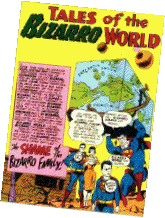
 The Twitter of News?
The Twitter of News? 
 Liz Gannes has written an intriguing story about the new version of Digg coming soon, saying it aspires to be "The Twitter of News." This is very interesting.
Liz Gannes has written an intriguing story about the new version of Digg coming soon, saying it aspires to be "The Twitter of News." This is very interesting.
Think of Twitter as "at least a dress rehearsal for the news system of the future." They gave it a diminutive name, easy to dismiss, but Twitter does something important. It makes composing and reading news easier than it's ever been.
But Twitter has been standing in the same place for a long long time. Why shouldn't Digg be able to catch up and pass them in a meaningful way? If they're motivated enough and good enough the answer is they should.
What's wrong with the tech industry that it lets Twitter stagnate so long without raising a serious challenge. Google didn't do it with Buzz or Wave. Yahoo could have done something with Flickr, but they're too disorganized. Even Facebook has failed to mount a realistic challenge to Twitter.
So why not Digg? Let's hope they have something good. Let's also hope they have innovated with their API, kept it simple, and perhaps offer developers a little more to play with than Twitter has.
It's time for some rock and roll.
Update: Zee sees it too. ![]() ">
">
 I don't like wires but I do like ports
I don't like wires but I do like ports 
 My home computers have been on a diet. I've been retiring hard drives, ones that are under 1TB in size, and replacing them with new 2TB drives. It's been more than 1-for-2 because of the efficiency of larger spaces for backups and videos. And desk-clutter has been dramatically reduced. I can now put my printer on the desk with the computers and disks, router and 24-inch Cinema display. And in the living room, there's space behind the 46-inch Sony HD-TV for more hard drives should I ever want to add them, both on the power strip and on the USB hub.
My home computers have been on a diet. I've been retiring hard drives, ones that are under 1TB in size, and replacing them with new 2TB drives. It's been more than 1-for-2 because of the efficiency of larger spaces for backups and videos. And desk-clutter has been dramatically reduced. I can now put my printer on the desk with the computers and disks, router and 24-inch Cinema display. And in the living room, there's space behind the 46-inch Sony HD-TV for more hard drives should I ever want to add them, both on the power strip and on the USB hub.
So when I read on Engadget that Apple is getting ready to ship a new Apple TV with no ports at all, I thought how horrible, unless -- perhaps they've looked at the wire-mess issue and come up with a wireless way to connect desktop devices like hard disks, printers and external monitors. But I suspect that they haven't, and they believe that the "consumer" doesn't need any local storage.
Reminds me of a story a Jamaican cab driver told as he was driving me from Montego Bay to Negril. This was a long time ago, when my Jamaican uncle was still alive and I was still a smoker. As we drove through a village, he pointed out the new cottages, and said they had been built by the Cubans. They have all the modern conveniences, running water, indoor plumbing, even electricity. But the people don't want to live in them because Cuban-built houses don't have back doors.
 I asked why do they need back doors?
I asked why do they need back doors?
He laughed and said, when the police knock on the front door, it's nice to have a back door. ![]() ">
">
I've said it before and it's worth saying again. Apple is building the Disney computer network. All the streets are clean, and the entertainment too. There's no porn here, and as long as there are no ports it'll stay that way. But computers are meant to be more than DisneyLand, they are meant to solve societal problems and help our species evolve. That means we must have freedom. And freedom and control are exact opposites. So I'd rather have wire-cluttered desktops and TV stations, than have Apple decide what I can and can't watch.



